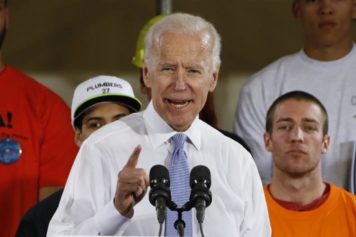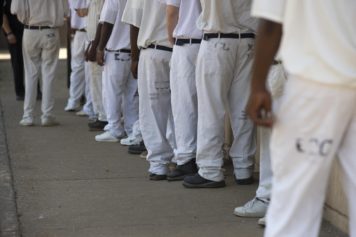
The decision comes following a Houston demonstration in which protesters, holding signs that read “End Whole Foods Market’s Profiting From Prison Slave Labor,” criticized the company for employing inmates in prison-work programs.
“People are incarcerated and then forced to work for pennies on the dollar — compare that to what the products are sold for,” said Michael Allen, founder of End Mass Incarceration Houston and organizer of the protest, to The Salt.
According to NPR, Whole Foods sells two products—goat cheese made by Haystack Mountain Goat Dairy in Longmont, Colo., and tilapia produced by Quixotic Farming, which calls itself a family-owned sustainable seafood company. These businesses have a partnership with a division of the Colorado Department of Corrections known as Colorado Correctional Industries, to raise the fish and milk the goats. CCI employs 1,600 prisoners and provides them with work and training.
“We felt that supporting supplier partners who found a way to be part of paid, rehabilitative work being done by inmates would help people get back on their feet,” Whole Food’s spokesperson Michael Silverman wrote in an email to The Salt. Although Silverman said Whole Foods liked the idea of hiring inmates, “we have heard from some shoppers and members of the community that they were uncomfortable with Whole Foods Market’s sourcing products produced with inmate labor.” The company decided to stop selling the two products so they would stay “in-tune” with the desires of customers.
The prison work program, which is billed as “rehabilitative incarceration” in which inmates learn teamwork and receive job training as a means to help them find employment once they are released, faces no federal regulation. And while CCI supporters point to a lower recidivism rate and call it a model program, the exploitative aspects of prison labor as a form of modern-day slavery are evident.
Whole Foods is by no means alone, as hundreds of corporations profit from prison labor and the prison-industrial complex, in what is known as insourcing. Employers receive a $2,400 tax credit for every work-release prisoner they hire under the Work Opportunity Tax Credit (WOTC), while prisoners earn from 90 cents to $4 a day.
Federal prison industry depends on inmate labor, producing 100 percent of all military helmets, war supplies and other equipment. Fast food giants McDonald’s and Wendy’s rely on prison labor to cut costs as well, with the former using inmates to produce frozen foods, and process beef, bread, milk and chicken products, and the latter processing beef for patties.
Sprint uses prisoners in their call centers, while inmates provide telecommunications services for Verizon. In South Carolina, female prisoners sew garments for Victoria’s Secret, while J.C. Penney and Kmart sell jeans made by prisoners in Tennessee. Further, American Airlines and Avis car rental use prisoners to make reservations. In addition, Walmart uses prisoners to remove UPC bar codes from products in order to resell them, while a Starbucks subcontractor hired inmates in the state of Washington to package holiday coffee.
Fidelity Investments, which deals with 401(K) plans and other investments, invests in prison labor and funds the American Legislative Exchange Council (ALEC), which is responsible for new laws allowing for prison labor in manufacturing.
According to section 1 of the Thirteenth Amendment, “Neither slavery nor involuntary servitude, except as a punishment for crime whereof the party shall have been duly convicted, shall exist within the United States, or any place subject to their jurisdiction.”


